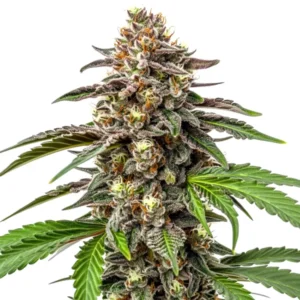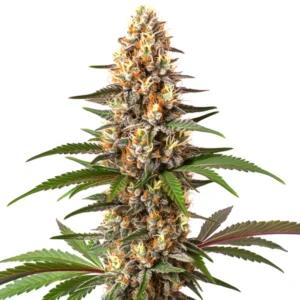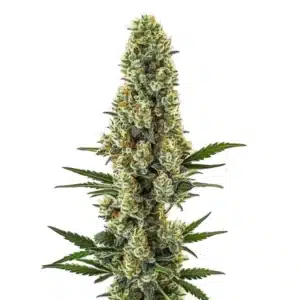
Cannabis Treatment for Dogs: A Critical Examination
Overview of Cannabis Treatment for Dogs
Historical Background and Traditional Uses
Historical records show that natural plant remedies were once widely used to support health in various species. In some ancient cultures, herbal extracts were given to animals to ease discomfort; however, there is no evidence that these practices specifically endorsed weed for dogs. Early traditions often relied on milder herbal infusions, and any reference to cannabis was anecdotal and never intended for modern canine care. Veterinary wisdom has since evolved with stricter standards for animal safety.
Ancient texts sometimes mention the use of herbal concoctions in animal care, yet the notion of cannabis treatment remains largely a modern misinterpretation. Traditional uses of natural remedies emphasized balance and mild relief rather than potent compounds. Historical practices did not promote giving concentrated cannabis extracts to dogs, and modern veterinary research reinforces that these ancient approaches cannot be directly applied to today’s pets without significant risk.
Recommended Strains
Z OG x Tangie Power
|
|
THC | 18% - 22% (Medium) |
|
|
Type | Feminized |
|
|
Yield | Medium |
|
|
Phenotype | 45% Indica / 55% Sativa |
Z OG Tangie Power Autoflower
|
|
THC | 22% - 24% (Medium) |
|
|
Type | Autoflowering |
|
|
Yield | High |
|
|
Phenotype | 40% Indica / 60% Sativa |
Modern Applications in Canine Health
In recent years, some online sources have discussed cannabis treatment for dogs in the context of anxiety and pain relief. However, scientific evidence and clinical observations overwhelmingly caution against its use in dogs due to differences in metabolism and sensitivity compared to humans. Veterinary professionals warn that dogs are particularly vulnerable to the psychoactive effects of cannabis, and current medical consensus advises against using such treatments in canine care. Pet owners are urged to seek approved alternatives.
Some websites and anecdotal reports claim that natural cannabis products might benefit dogs with certain conditions, but rigorous research does not support these claims. Instead, veterinarians recommend conventional treatments that are safe and well-tested. The risks of toxicity and unintended side effects far outweigh any unproven benefits of cannabis treatment. Responsible pet care demands that natural treatments undergo thorough vet review before being considered for animal use.
Promos & Deals
Scientific Insights into Cannabis Treatment for Dogs
Mechanisms of Action in Canine Physiology
Research shows that cannabinoids interact with receptors in the body, influencing pain perception and mood regulation. However, dogs process these compounds very differently than humans, often leading to severe adverse reactions. Studies indicate that cannabis treatment for dogs can result in respiratory distress, lethargy, and other negative outcomes because the canine endocannabinoid system is not suited for these substances. Veterinary research repeatedly advises against its use in dogs.
Laboratory experiments demonstrate that while cannabinoids can have anti-inflammatory effects, the dosages that might work in humans are dangerous for dogs. Canine physiology lacks the same capacity to metabolize these compounds safely, and even small amounts can lead to significant toxicity. These scientific findings highlight why caution is essential when considering any form of cannabis treatment for dogs, reinforcing the recommendation that pet owners avoid its use entirely.
Research Findings and Clinical Observations
Clinical research involving THC treatment for dogs remains very limited and largely anecdotal. Veterinary studies have documented cases where accidental ingestion of cannabis led to serious health issues in dogs, including seizures, coma, and even death. Such adverse outcomes underscore that the effects of THC treatment for dogs are unpredictable and potentially harmful. Research consistently concludes that the risks associated with THC treatment for dogs outweigh any potential benefits, urging strict avoidance in clinical practice.

Integrative Approaches in Veterinary Cannabis Therapy
Combining Cannabis with Conventional Veterinary Treatments
Some proponents of natural treatments suggest combining cannabis with standard veterinary therapies to support dogs with chronic pain or anxiety. However, veterinary guidelines clearly state that cannabis treatment is unsafe and unapproved. Integrative approaches in canine health should only include treatments with proven safety and efficacy. Combining untested natural compounds with established medications can lead to unpredictable interactions and worsen a dog’s condition. Veterinarians insist on using validated, conventional treatments for canine health management.
Even when pet owners are desperate for alternatives, it is essential to follow the recommendations of veterinary professionals. No scientific study supports the safety of combining cannabis with conventional treatments in dogs. Instead, research shows that interactions between cannabinoids and common medications can create dangerous side effects. The priority in veterinary care remains the use of safe, approved medications rather than experimenting with natural substances that might compromise a pet’s health.
Personalized Dosage and Administration Techniques
Even if one were to consider any form of natural treatment, personalized dosage and administration are critical factors in all medical treatments. In the context of cannabis treatment for dogs, however, no safe dosage guidelines exist. Veterinary experts emphasize that dogs have unpredictable responses to cannabis compounds, and even carefully measured doses can result in toxicity. Administration techniques designed for humans cannot be safely transferred to dogs due to differences in physiology and metabolism.
Safety, Quality, and Regulatory Considerations
Legal Guidelines and Product Standards for Canine Use
Regulatory authorities have established strict guidelines for natural cannabis products intended for human use, but these standards do not extend to animals. There is no approved framework for cannabis treatment for dogs, meaning products are not tested or certified for canine safety. Legal guidelines clearly state that unregulated natural substances pose significant risks when administered to dogs. Manufacturers do not provide labeling that supports safe use in animals, and any off-label use is strongly discouraged by veterinary regulators.
Without regulatory oversight, products marketed as cannabis treatment are not subject to quality control measures that ensure safety, purity, and consistency. Pet owners should be aware that using such products can expose their dogs to contaminants and dangerous levels of cannabinoids. Regulatory agencies have not approved cannabis for canine use, and strict adherence to legal guidelines protects animals from unproven, hazardous treatments.
Best Practices for Safe Consumption and Storage
Even if natural treatments appear appealing, safe consumption and storage practices for cannabis products are developed for humans, not dogs. Pet owners must never administer cannabis treatment for dogs, as recommended safety practices do not translate to canine physiology. Safe usage requires precise dosing, proper storage in controlled environments, and adherence to clear instructions—all of which are lacking in products not approved for animal use. Maintaining product integrity is critical, and the absence of veterinary guidelines makes any use unsafe.
Veterinarians stress that pet owners should avoid giving any form of cannabis to their dogs. Best practices in human consumption, such as storing products away from heat and light, do not mitigate the inherent risks for animals. Without validated guidelines, cannabis treatment can lead to accidental overdoses, making it imperative that pet owners refrain from using these products altogether.
Market Trends and Emerging Perspectives in Canine Therapies
Industry Developments and Consumer Insights
Market trends show a growing interest in natural wellness, yet cannabis treatment for dogs remains controversial. Some companies claim their products support canine health, but consumer insights and veterinary opinions overwhelmingly caution against it. Industry developments focus on products for human use, and attempts to adapt these for dogs have not gained regulatory approval. Pet owners are advised to remain skeptical of claims regarding natural cannabis products for dogs, as safety and efficacy are not established.
Consumer demand for natural treatments is rising, but the risks associated with cannabis treatment overshadow potential benefits. Reputable sources consistently warn against the use of these products in pets. Industry data indicates that although interest exists, ethical and legal concerns prevent responsible companies from marketing cannabis for lung cancer or other conditions in dogs. Veterinary consensus supports conventional therapies that have undergone rigorous testing and approval.
Advancements in Product Formulation and Applications
Advancements in product formulation continue to improve natural cannabis products for human health, yet these innovations are not designed for canine use. Some manufacturers attempt to modify extraction techniques and dosage forms to create products labeled as cannabis treatment, but no clinical evidence supports their safety. Innovations in product formulation aim at optimizing bioavailability and consistency, but these efforts remain limited to human applications. Research shows that transferring these advancements to dogs introduces significant risks.
Even as technology advances in the field of natural therapies, the scientific community advises caution. There is a gap between innovative human cannabis products and their application in veterinary medicine.
In-Depth Discussion on Cannabis for Lung Cancer Treatment
(Please note: The following section is included for contrast and should not be confused with canine applications. It reinforces the point that cannabis treatment for dogs is not advisable when considering the extensive research on human applications.)
This discussion reveals diverse perspectives from human medical research, where cannabis is sometimes studied for its supportive effects in cancer treatment. Data show that cannabinoids may reduce inflammation and alleviate pain in human patients. However, these findings cannot be extrapolated to dogs because of marked physiological differences. Veterinary studies consistently indicate that even low doses of cannabis can produce severe adverse effects in animals. Such evidence underscores the risks associated with applying human-centric treatments to canine health care.
Additional Insights on Cannabis Treatment for Dogs
Additional insights from veterinary research reiterate that cannabis treatment is unsafe. Studies comparing canine and human physiology reveal significant differences in metabolism and receptor sensitivity, which result in unpredictable and often dangerous responses in dogs. Veterinarians advise that even trace amounts of cannabinoids can lead to severe toxicity.
Researchers continue to evaluate alternative natural therapies that may safely support canine health, but cannabis remains off-limits. These additional insights provide a clear message: while natural products hold promise in human medicine, their application in veterinary care requires strict caution. Pet owners should rely on treatments that are specifically tested and approved for animals to avoid life-threatening complications and ensure the well-being of their pets.
Practical Considerations in Using Cannabis Treatment for Dogs
Patient selection and veterinarian consultation are critical when considering any natural treatments for pets. However, there is a universal consensus in veterinary medicine that cannabis treatment is unsafe and should not be attempted. Pet owners must seek advice from qualified professionals and rely on approved treatments designed specifically for animal care. In cases where natural support is desired, alternative supplements and therapies with proven safety profiles should be used instead of cannabis.
Integrating any natural therapy into canine health care requires caution. Veterinarians advise against using cannabis due to potential toxic effects. Instead, pet owners should focus on conventional treatments and supplements that have been rigorously tested for animal use. Adhering to these practical considerations protects pets from unintended harm and promotes safe, effective management of their health issues.
Current Research and Perspectives on Cannabis Treatment for Dogs
Ongoing veterinary research consistently shows that cannabis treatment for dogs poses significant risks. Studies highlight that the active compounds in cannabis can lead to adverse reactions in dogs, such as respiratory distress, impaired coordination, and severe sedation. Research in controlled settings reinforces that no safe dosage has been established for canine use, and most adverse outcomes result from even small exposures. This evidence strongly discourages the use of natural cannabis products in dogs.
Veterinary experts continue to review clinical data and case reports involving accidental cannabis ingestion by dogs. These reports document alarming symptoms and, in some cases, require emergency medical treatment. The consensus in the veterinary community remains clear: cannabis treatment for dogs should never be administered. Current research firmly supports the exclusion of cannabis from canine therapeutic protocols due to its high risk of toxicity and unpredictable effects.

Additional Insights on Cannabis Treatment for Dogs
Further investigation into natural therapies for canine health consistently shows that cannabis is not a safe option. Laboratory studies comparing the metabolism of dogs and humans reveal significant differences, leading to higher sensitivity and toxic responses in dogs. Research from veterinary schools and clinical trials warns that even products marketed as safe for human use can have dangerous side effects in animals. These additional insights confirm that cannabis treatment is unsafe and must be avoided.
Advances in natural health supplements for pets focus on compounds that have been specifically tested for animal safety. These alternatives provide support for canine health without the risks associated with cannabinoids. Veterinary research strongly advises pet owners to choose treatments that have undergone thorough safety testing and are approved for animal use. The evidence consistently indicates that cannabis treatment for dogs is not a viable or safe option.
FAQs about cannabis treatment for dogs
What risks are associated with cannabis treatment for dogs?
Cannabis treatment can cause severe adverse reactions, including respiratory distress, disorientation, and gastrointestinal upset. Veterinary research shows that even small amounts may lead to toxicity, making it dangerous for canine health. Adverse effects such as lethargy, uncoordinated movements, and sedation have been documented. This evidence strongly indicates that using cannabis for dogs poses significant risks and should be strictly avoided to ensure the safety and well-being of pets.
How do veterinarians view cannabis treatment for dogs?
Veterinarians consistently advise against using cannabis treatment due to the high risk of toxicity and unpredictable effects. Clinical observations reveal that dogs metabolize cannabinoids differently from humans, leading to adverse reactions such as severe sedation, respiratory issues, and impaired motor functions. Experts emphasize that no safe dosage exists for dogs, and alternative, approved treatments should always be used for managing canine health conditions. The consensus firmly discourages cannabis use in dogs.
What alternatives exist to cannabis treatment for dogs?
Instead of cannabis treatment for dogs, veterinarians recommend using established, approved medications and natural supplements specifically formulated for animal health. Alternatives include medications for pain, inflammation, and anxiety that have undergone rigorous safety testing for canine use. These treatments provide reliable symptom management without the risks associated with cannabis. Pet owners are advised to consult with veterinary professionals to determine the safest, most effective options for their dog’s specific health needs, ensuring responsible care.




















